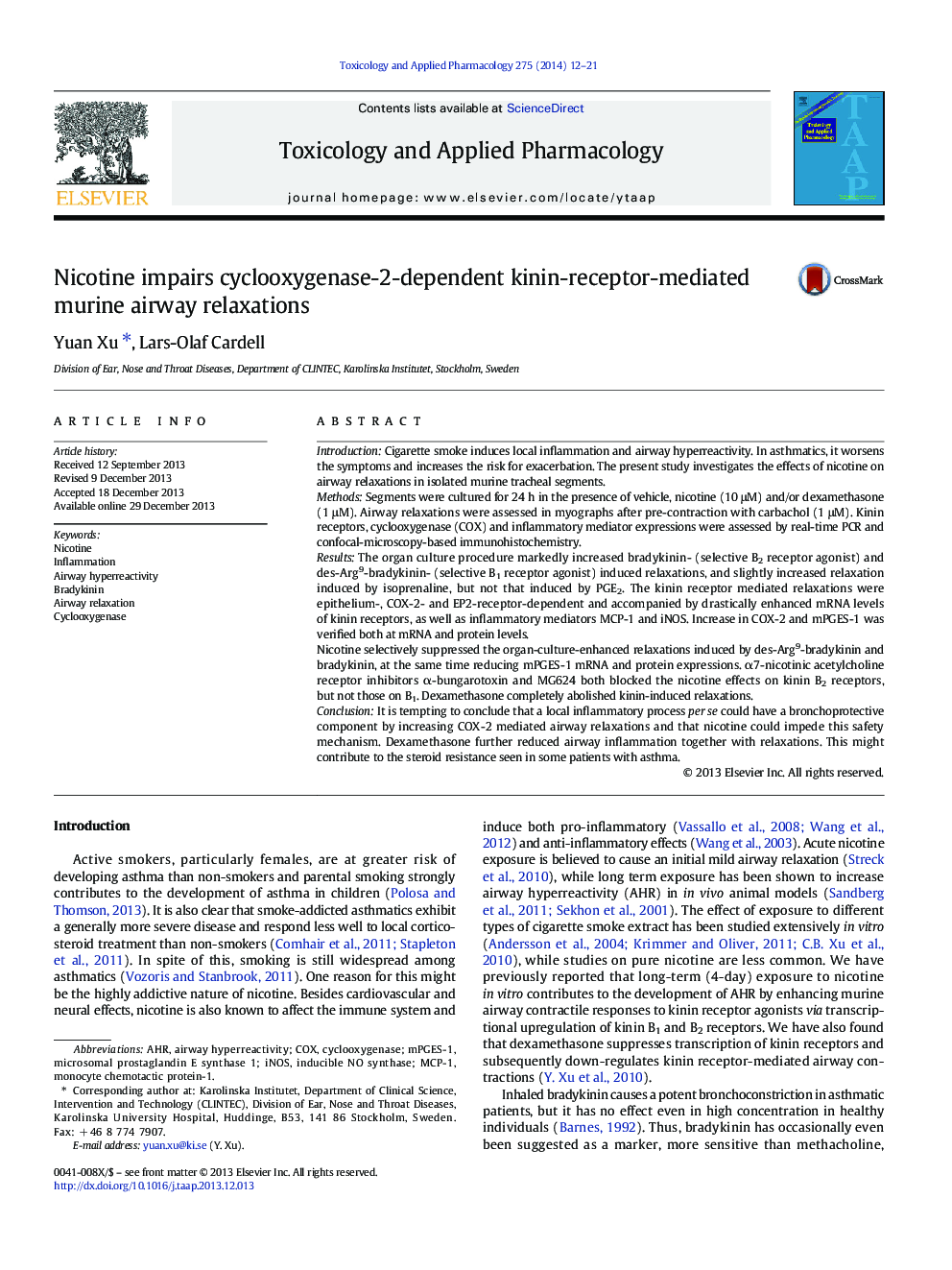| کد مقاله | کد نشریه | سال انتشار | مقاله انگلیسی | نسخه تمام متن |
|---|---|---|---|---|
| 2568581 | 1128467 | 2014 | 10 صفحه PDF | دانلود رایگان |
• Nicotine from smoking impaired epithelial COX-2-mediated airway relaxation.
• Nicotine's effects were at least partially mediated by α7-nicotinic receptors.
• Kinin-receptor-mediated airway relaxations are mediated by EP2 receptors in mice.
• Nicotine reduced mPGES-1 mRNA and protein expressions in airway smooth muscle.
• Dexamethasone could not restore nicotine-impaired airway relaxations.
IntroductionCigarette smoke induces local inflammation and airway hyperreactivity. In asthmatics, it worsens the symptoms and increases the risk for exacerbation. The present study investigates the effects of nicotine on airway relaxations in isolated murine tracheal segments.MethodsSegments were cultured for 24 h in the presence of vehicle, nicotine (10 μM) and/or dexamethasone (1 μM). Airway relaxations were assessed in myographs after pre-contraction with carbachol (1 μM). Kinin receptors, cyclooxygenase (COX) and inflammatory mediator expressions were assessed by real-time PCR and confocal-microscopy-based immunohistochemistry.ResultsThe organ culture procedure markedly increased bradykinin- (selective B2 receptor agonist) and des-Arg9-bradykinin- (selective B1 receptor agonist) induced relaxations, and slightly increased relaxation induced by isoprenaline, but not that induced by PGE2. The kinin receptor mediated relaxations were epithelium-, COX-2- and EP2-receptor-dependent and accompanied by drastically enhanced mRNA levels of kinin receptors, as well as inflammatory mediators MCP-1 and iNOS. Increase in COX-2 and mPGES-1 was verified both at mRNA and protein levels.Nicotine selectively suppressed the organ-culture-enhanced relaxations induced by des-Arg9-bradykinin and bradykinin, at the same time reducing mPGES-1 mRNA and protein expressions. α7-nicotinic acetylcholine receptor inhibitors α-bungarotoxin and MG624 both blocked the nicotine effects on kinin B2 receptors, but not those on B1. Dexamethasone completely abolished kinin-induced relaxations.ConclusionIt is tempting to conclude that a local inflammatory process per se could have a bronchoprotective component by increasing COX-2 mediated airway relaxations and that nicotine could impede this safety mechanism. Dexamethasone further reduced airway inflammation together with relaxations. This might contribute to the steroid resistance seen in some patients with asthma.
Figure optionsDownload high-quality image (163 K)Download as PowerPoint slide
Journal: Toxicology and Applied Pharmacology - Volume 275, Issue 1, 15 February 2014, Pages 12–21
